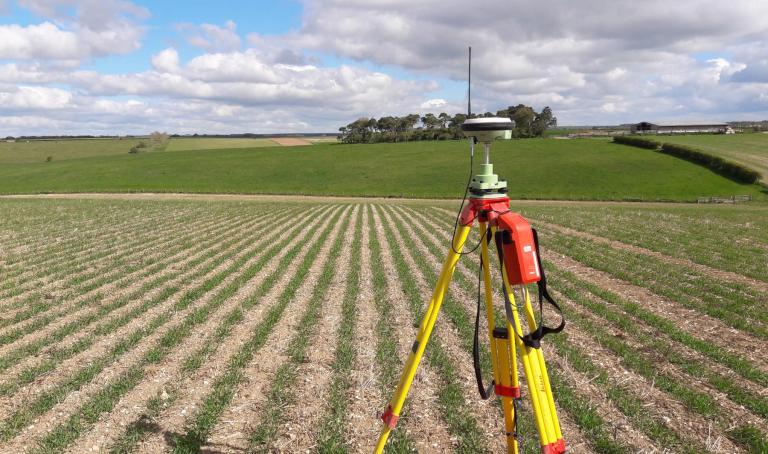For over 40 years, Wessex Archaeology has undertaken important research in the area around Stonehenge now designated as a World Heritage Site. We have been the trusted archaeological contractors for the A303 improvement scheme since 1998, working in partnership with National Highways and stakeholders to meet the needs of this sensitive and precious heritage landscape.
History of work
1990s and 2000s
Between 1998 and 2003 we played a vital role in the development of proposals for the improvement of the A303.
In June 1999 the (then) Secretary of State for Environment, Transport and the Regions announced a decision on the preferred route for the A303 Stonehenge scheme. The scheme included the upgrading of the A303 to dual carriageway from Berwick Down to Amesbury, a new by-pass for the village of Winterbourne Stoke, a modified junction at Amesbury and a tunnel past Stonehenge itself. The proposed road seeks to improve traffic flow and remove the sight and sound of vehicles for visitors to Stonehenge.
Wessex Archaeology undertook archaeological surveys throughout the life of the A303 Stonehenge scheme and at this time was a sub-consultant to Mott MacDonald who were then the Highways Agency’s advisors. We also undertook fieldwork for Halcrow-Gifford who were part of the team appointed as ‘early design and build contractors’ recruited to build the road.
The surveys were undertaken with the full agreement of English Heritage (now Historic England) the National Trust, and Wiltshire County Council, they progressively increased the level of archaeological information surrounding the road corridor. The scope of the work included documentary searches, geophysical surveys (undertaken by GSB), fieldwalking, test-pit and auger survey, and test trenching. A series of reports was submitted to the Highways Agency to inform both the design of the road and for the Environmental Assessment necessary for the road.
A short publication about the Archaeology on the A303 Stonehenge Improvement was produced along with a series of specialist reports. The specialist reports are available to download below.
A the application for a Development Consent Order for A303 Stonehenge was approved by the Secretary of State for Transport in 2020, following a six-month Public Examination in 2019. A Judicial Review was launched and the the decision was overturned in 2021. A revised application for the A303 Stonehenge Scheme was submitted by National Highways in 2022. The Secretary of State for the Department of Transport granted a Development Consent Order for the scheme on 14th July 2023.
On 29th July 2024, the government took the decision to review the A303 scheme and as a result, it did not go ahead in the proposed form.

A303 Stonehenge FAQs
Publication: Archaeology on the A303 Stonehenge Improvement
ISBN: 978-1-874350-48-4
SOLD OUT - This book is now out of print
This volume reports on the archaeological works undertaken between 1998 and 2003 as part of the A303 Stonehenge Improvement highway scheme promoted by the Highways Agency.
The A303 trunk road and the A344 which pass Stonehenge are widely agreed to have a detrimental effect on its setting and on other archaeological features within the World Heritage Site. Around Stonehenge there is noise and visual intrusion from traffic and also air pollution. Each year nearly one million people visit the World Heritage Site and surroundings, using visitor facilities intended to cater for a much smaller number.
Many plans that might improve this situation have been examined, involving partnership working across many organisations. Common to all these has been the aim of removing traffic from the area of Stonehenge and at the same time addressing highways issues with regard to road capacity and safety.
This volume sets out the objectives of the extensive programme of archaeological work that was undertaken to inform the planning of the highway scheme, the methods used, the results obtained, and to explain something of the significance of works which provided a 12 km transect across the WHS and beyond: the first of its kind ever undertaken.

